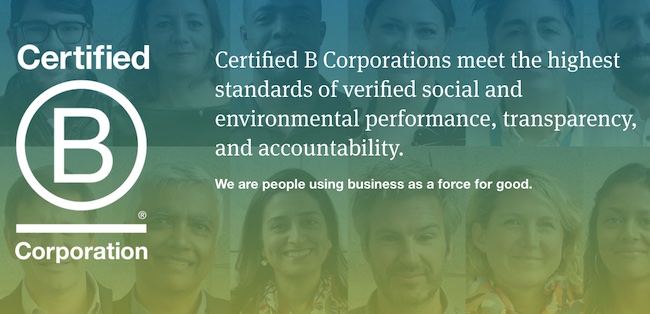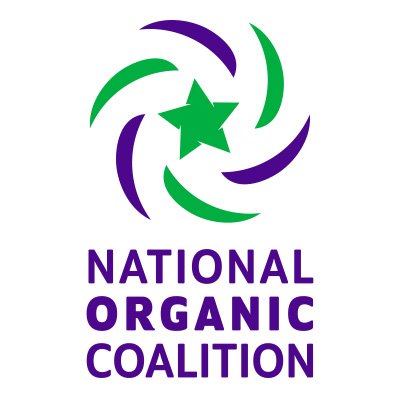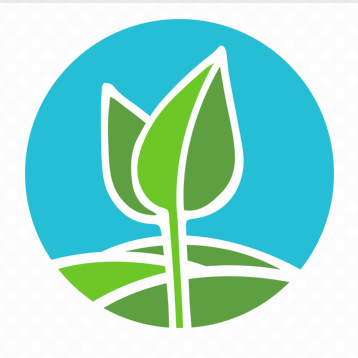
With Danone Cutting the Contracts of 89 Small Organic Dairy Farmers, B Corp has Made a Decision About the Company's Certification Status
How Organic Insider operates: We accept no advertising, we have no paywalls and we make our newsletters free to everyone — because vital information about our industry needs to get out to as many people as possible. Please consider supporting our work, whether you are an individual or a company. Thank you so much.
Certified B Corporations are businesses that meet the highest standards of verified social and environmental performance, public transparency and legal accountability to balance profit and purpose.
Given that many prominent organic brands are B Corps, what happens with this certification has real relevance to our industry.
At issue is what recently took place with Danone North America (Danone), when it cut the contracts of 89 small organic dairy farms in New York and New England, serving a devastating blow to these farmers and their communities.
While businesses are completely free to make decisions that are in their best interest, this move was complicated by the fact that Danone is also the largest B Corp in the world.
From B Corp’s website, it says:
“The B Corp community works toward reduced inequality, lower levels of poverty, a healthier environment, stronger communities, and the creation of more high quality jobs with dignity and purpose. By harnessing the power of business, B Corps use profits and growth as a means to a greater end: positive impact for their employees, communities, and the environment.”
Furthermore, Certified B Corporations are legally required to “consider the impact of their decisions on their workers, customers, suppliers, community, and the environment.”
DANONE’S ACTION — OR LACK OF ACTION
Because of the intricacies and nuances of the organic dairy industry in the Northeast, it was widely known that if Danone cut the contracts of these 89 organic dairy farmers, they would have few options for survival and very possibly face financial ruin. That would mean the small communities where these farms operate would also feel the effects, including a lower tax base and the elimination of important local businesses, which impact other nearby businesses.
At the time of the announcement, both Organic Valley and Stonyfield — the only obvious and realistic options for these farmers — were not taking on new farms. Two weeks ago, seeing the calamity that was unfolding, Stonyfield announced that it would invite some of these farmers into its network and would create a task force to help all of the farmers.
“It’s a challenging time for the organic dairy market to absorb more farms, but we can’t just stand by and watch these farms in our own backyard go out of business,” said Gary Hirshberg, co-founder and chief organic optimist of Stonyfield.
Organic Valley has not committed to taking on any of these farmers, as it is already at maximum capacity. Stonyfield is a B Corp, and Organic Valley is a cooperative of farmers.
According to Ed Maltby, executive director of the Northeast Organic Dairy Producers Alliance, going at it alone is just not an option for most of these organic dairy farmers.
“They simply do not have the time, inclination or ability to farm, market, create new value-added products and distribute their products. On its own, organic dairy farming is brutally difficult, especially with the low prices and negative margins, at times. Aside from Stonyfield and Organic Valley, there is pretty much nowhere for these farmers to sell their organic milk, and every player in the industry understands this, including Danone.”
When Danone made this decision to cut the contracts, it cited “growing transportation and operational challenges” as the reason. For the first six months of 2021, the net income for Danone’s parent company was 1.068 billion euros ($1.238 billion dollars).
Knowing that these 89 organic dairy farmers would have limited options, what steps did Danone take to help soften the blow and make sure that it was in alignment with its B Corp commitment to strengthen communities? Did it fulfill its legal obligation to consider the impact of its decision on the community?
Upon making the announcement, Danone offered the 89 organic dairy farmers an additional one-year contract. Compared to the 90-day notice that Dean Foods gave dairy farmers several years ago when their contracts were cut, the one-year period is much more favorable.
Yet, that one-year contract extension is hardly a panacea.
What Danone did not do is exhaust every option in advance, such as working directly with the 89 farmers and respective government officials in the seven states to come up with a viable plan, or seeking financing for transfer stations or larger on-farm tanks in order to cut costs.
If the company had turned over every stone in order to come up with a solution that worked for all parties, it would not be facing such backlash from the organic industry and politicians.
Senate Majority Leader Charles Schumer (D-NY) is fighting for answers from Danone and is calling for aid from the company.
In Maine, Governor Janet Mills said, “I’m upset. Danone is a B Corporation. They’re supposed to be involved with social justice.”
In a letter sent to Danone (the parent company) from U.S. Representatives Peter Welch (D-VT), Chellie Pingree (D-ME), Jared Golden (D-ME) and Annie Kuster (D-NH), the lawmakers wrote, “By all accounts, your decision to sever the contracts of these 89 farms was one based solely on maximizing profits, regardless of the devastating consequences for the families and communities you cast aside and despite the reputational benefits and profit you gleaned from their work. Clearly, your 2020 corporate revenue of $27 billion was not enough.”
It went on to say, “Your actions against these Northeast farmers are in direct conflict with the B Corp commitment of ‘balancing profit with purpose’ and ‘using business as a force for good.'”
B CORP MAKES A DECISION
Last night, Alexa Harrison, senior public relations manager at B Lab U.S. & Canada, emailed Organic Insider with the following message:
B Lab (the entity that oversees the B Corp certification) has reviewed this situation internally and found that Danone North America is not in violation of the B Corp standards. B Lab’s standards were created to provide a framework for continual improvement and evaluation of positive impact and negative risk of a company’s social and environmental performance, transparency, and accountability throughout all aspects of their business. Our certification standards do not restrict a B Corp’s supply chain selections e.g. requiring a certain type of product from a certain type of supplier. Danone North America has been and continues to be a strong advocate for the B Corp movement, and while these decisions could impact a company’s score, it does not affect certification status.
It is now up to the entire organic community, including those that are B Corp members and those that are not, to determine whether this was handled in an equitable manner and what level of integrity the B Corp certification now carries.
In the meantime, no one should expect to hear much from the 89 organic dairy farmers. According to Ed Maltby, they are either under a confidentiality agreement with Danone, do not want to jeopardize the one-year contract extension from Danone, or do not want to be perceived as troublemakers by either Stonyfield or Organic Valley.
 |
With gratitude, 
Max Goldberg, Founder |
Quick Hits
* Center for Food Safety and other groups filed a legal petition challenging the EPA’s inaction on factory farm air pollution.
* YesAnd is now selling organic denim.
* Wild Orchard, the regenerative organic tea brand that sources its products from Jeju Island in South Korea, took home two awards at the AVPA Teas of the World Contest — Gold (Early Spring Tea) and Bronze (Black Tea).
* Farm to Home founder Marci Zaroff on how regenerative agriculture can heal the textile industry — and the planet.
* Congrats to Daily Harvest and founder/CEO Rachel Drori on the company’s five-year anniversary.
* Patagonia Provisions is venturing into a new category.
* Harmless Harvest has released its first annual Mission Report, which discusses, among other things, the company’s Regenerative Coconuts Agriculture Project.
* KeHE has announced a new distribution partnership with Erewhon.
* Straus Dairy Farm and Blue Ocean Barns have demonstrated a dramatic climate change solution in dairy farming by using this plant.
* Uncle Matt’s Organic has partnered with the 1% Better Foundation.
* Organic Meadow just introduced North America’s first zero-carbon milk carton.
* Next week, I will be attending the SEED Food and Wine Festival in Miami. Be sure to follow along on Instagram Stories.
New Organic Products
Multi Grain Squares Cereal from Cascadian Farm
New from Cascadian Farm is its Multi Grain Squares Cereal, which offers 5g of fiber and 35g of whole grain per serving. This product is in support of the company's commitment to The Nature Conservancy. Throughout 2021 and 2022, Cascadian Farm is donating $750,000 to help improve agriculture practices in the Central Valley of California.Regenerative Maple Pecan Ground Coffee from Thrive Market
This small-batch, organic Maple Pecan blend from Thrive Market pairs medium-roast, ethically sourced Peruvian Arabica beans with notes of roasted pecans, cinnamon spice and a hint of maple syrup. Sourced directly from regenerative farmers across the globe.Pumpkin Spice and Gingerbread Dark Chocolate from Hu Products
Hu Products has introduced two new holiday editions of its organic chocolate -- Pumpkin Spice Dark Chocolate and Gingerbread Dark Chocolate, both of which are 70% cacao. Certified paleo, vegan, soy-free, no refined sugars and no emulsifiers.Adaptogenic Tea from Sama
Sama is a brand new line of adaptogenic tea from Jay Shetty, a life and purpose coach with over 48 million followers across social media, and his wife Radhi Devlukia-Shetty. Inspired by Ayurveda, the teas come in four flavors: Calm & Relax (lavender rose chamomile), Awaken & Energize (Earl Grey), Focus & Clarity (mint blueberry) and Protect & Support (jasmine peach).
Weekly News Summaries


Organic Organizations and Consumers Call on Danone North America to Stand by Northeast Organic Dairy Farm Families
Yesterday, nine organic organizations representing organic farmers and consumers delivered two petitions with 15,234 signatures asking Danone North America, owner of Horizon Organic, not to leave the Northeast.

Whole Foods Market reveals Top 10 Food Trends for 2022
Functional beverages made with prebiotics and botanicals, buzz-less spirits, yuzu and Reducetarianism are among the food influences expected to rise in popularity in the next year.

Soli Organic announces $120M Financing Arrangement to Expand Organic Controlled Environment Agriculture
The company, formerly known as Shenandoah Growers, will have a total of 15 soil-based indoor farms, supporting its plans to shift 90% of production to indoor.

Study: The Dietary Risk of Pesticides in Your Food
By Emily Marquez
A new study has created a concept called a Dietary Risk Index (DRI) and tells us that organic farming lowers dietary risks of exposure to pesticides.


Conventional Food Prices are Rising Faster than Organics
By Victoria A.F. Camron
While organic foods still cost more than conventional, the prices of conventional foods are increasing more quickly than the prices of organic foods.

Smallhold raises $25M
By Chloe Sorvino
Smallhold has raised a $25 million Series A to bring its organic mushrooms to the West Coast.

EPA Plans to Clean Up Troubled Chemical and Pesticide Programs
By Sharon Lerner
The EPA announced the creation of two internal scientific advisory panels after whistleblower accounts of internal corruption.

Farm-to-Fable Meat Merchant Belcampo Is All But Done
By Matthew Kang
The company's fraudulent organic labeling scandal in June appears to have been a fatal blow. A tragedy in every sense.
Organic U.S. Soy Prices Hit Record, Fuel Food Inflation
By Tom Polansek
Expect to pay a lot more for organic chicken and organic soy milk going forward.

‘People are Hoarding’: Food Shortages are the Next Supply Chain Crunch
By Leslie Patton, Kim Chipman and Brendan Case
The problem is processing and transportation capacity, not a lack of food.

Yale University to Research Health Benefits of Greek Organic Table Olives
The organic Kalamata olives are being studied because of their antioxidant and cardioprotective properties.
Want to share this newsletter on social media? You can use this link: Newsletter Link
The material in this newsletter is copyrighted and may be reprinted by permission only. All requests must be in writing. Please use our contact form to request republication rights.
Newsletter Archive
Quick Hits
* Center for Food Safety and other groups filed a legal petition challenging the EPA’s inaction on factory farm air pollution.
* YesAnd is now selling organic denim.
* Wild Orchard, the regenerative organic tea brand that sources its products from Jeju Island in South Korea, took home two awards at the AVPA Teas of the World Contest — Gold (Early Spring Tea) and Bronze (Black Tea).
* Farm to Home founder Marci Zaroff on how regenerative agriculture can heal the textile industry — and the planet.
* Congrats to Daily Harvest and founder/CEO Rachel Drori on the company’s five-year anniversary.
* Patagonia Provisions is venturing into a new category.
* Harmless Harvest has released its first annual Mission Report, which discusses, among other things, the company’s Regenerative Coconuts Agriculture Project.
* KeHE has announced a new distribution partnership with Erewhon.
* Straus Dairy Farm and Blue Ocean Barns have demonstrated a dramatic climate change solution in dairy farming by using this plant.
* Uncle Matt’s Organic has partnered with the 1% Better Foundation.
* Organic Meadow just introduced North America’s first zero-carbon milk carton.
* Next week, I will be attending the SEED Food and Wine Festival in Miami. Be sure to follow along on Instagram Stories.




